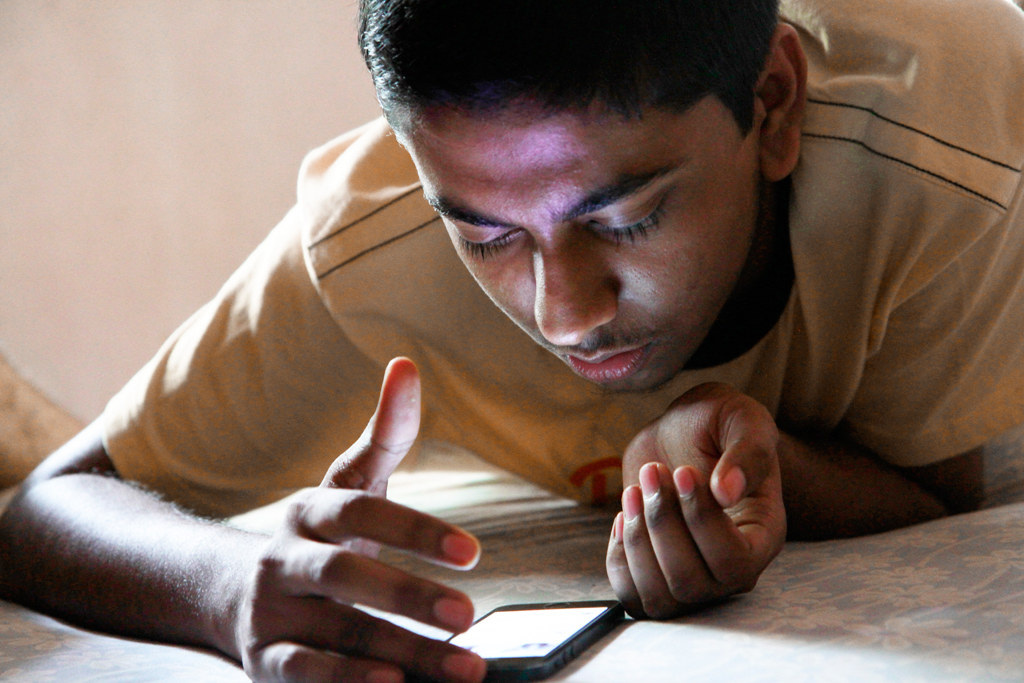Facebook comes of age
On 4 February 2004, a social medium was born that, in just over a decade, has become one of the most revolutionary and successful inventions of the century: Facebook. In spite of the many transformations it has undergone from the visual, relational and content viewpoints, twelve years later, Facebook is still one of the world's most popular social mediums. It has 1.59 billion active users and, of these, 934 million log on to the social medium every day. Facebook has come of age and Mark Zuckerberg, its founder, has enormous aspirations for the network with his new, world-embracing project: Internet.org. Experts from the UOC analyse the past, the present and the ethical quandaries raised by this network's future.
At the last Mobile World Congress (MWC), Zuckerberg presented Internet.org, a project whose goal is to take the Internet to the entire planet, connecting even the furthest, most remote corners of the Earth. It is estimated that it would give some 5 billion people access to the Web. The project, called Internet.org, will restrict access to certain websites and allow access to others, such as Facebook.
Is this "one Internet for the rich and another for the poor"?
"It cannot even be considered Internet; it's a product," says William F. Araújo, visiting researcher at the IN3. "It uses the name of a free network, such as the Internet we all know, to offer a private network service, with limited access to certain websites". Coming straight to the point, the expert adds that "it's all about business and controlling markets".
Ismael Peña, lecturer at the Faculty of Law and Political Science, argues that "even though it is a biased Internet, it will provide access to telecommunications and huge quantities of content that today are little more than a dream for two-thirds of the world's population". The expert in the information society alerts that "we should not be overpaternalistic but should let those who have no access to the Web have their say".
The ethical quandaries of connecting the world
"Obviously, it creates a two-speed space," Peña explains. "But we shouldn't think in terms of whether what we will have will be more discriminating or less discriminating but whether what we have now is more or less discriminating than what we may have in the future". However, in Araújo's opinion, "it raises highly complex issues about the future of the free Internet that we know today". Indeed, the organization Save the Internet and some Indian companies are accusing Zuckerberg's project of not defending "web neutrality".
On the question of this neutrality, Araújo says that "what Internet.org is proposing is a network manipulated by Facebook, where access is always subordinated to the company's interests". He adds that "it is a way of leveraging those who do not have Internet to offer them a service that constitutes unfair competition, a monopoly that hampers and narrows search capability". The information society expert admits that "Internet.org breaks with the principle of neutrality," but adds that "these reflections belong to a stage of human development in which access to needs has been assured".
For Peña, Internet.org is an opportunity that must be accepted: "We must work to converge on a quality, equitable access, but we should not stand still while we wait for the best opportunity". "Internet.org offers the opportunity for a large part of the world's population to have its basic needs covered with a biased, censored Internet"; for example, "it would enable remote prevention, diagnosis or treatment of diseases, access to educational contents, the creation of professional information and electronic commerce channels, strengthening of family or friendship ties, etc.," Peña explains.
Noble end or just a business?
"Businesses only 'do good' when they can benefit from it," the UOC lecturer considers. Araújo states that "it is purely a business enterprise". Peña argues that "what we citizens must do is to ensure that what benefits business must also benefit citizens and vice-versa". Regarding Internet.org, for example, "citizens can pressure for the five billion users who must make do with a 'second-tier Internet' to one day be able to enjoy a first-tier Internet access, making the biases public but not forcing users to do without this network".
More than a decade: too long for a social medium?
"Twelve years is not too long for a social medium, or at least, it isn't for Facebook, as it has been able to adapt, update and be flexible enough to align with new trends, new needs and new communication habits." In fact, "we are entering a stage of maturity in network consumption," says Silvia Martínez, lecturer in Communication at the UOC. This expert in social media explains that nowadays "they are not just used by users to interrelate but have become a space for interacting with brands and organizations and for keeping up-do-date in current affairs". She adds that "intense marketing actions are undertaken and very large investments are made in advertising campaigns because of the high level of feedback on the actions performed and the possibilities for audience segmentation".
Experts UOC
Press contact
-
Editorial department
